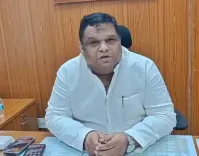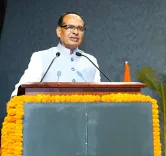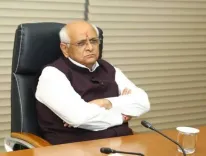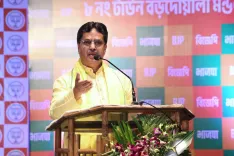Has the Delhi government introduced DBT for Kanwar camp committees?
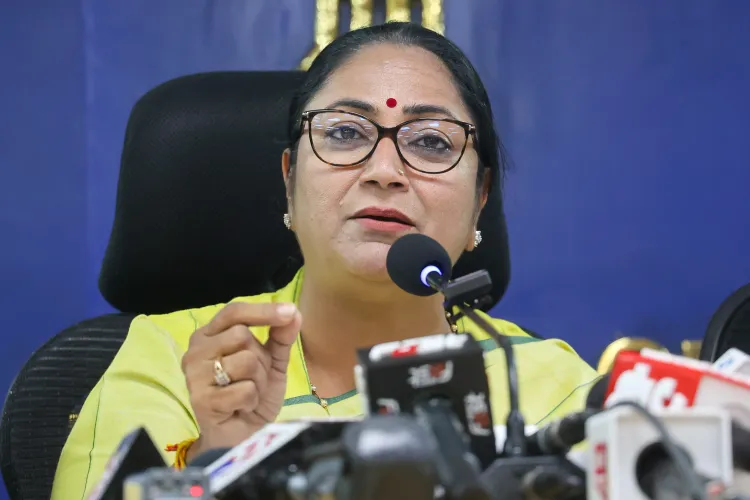
Synopsis
Key Takeaways
- Implementation of DBT for Kanwar camp committees.
- Complimentary electricity for organizing committees.
- Funds distributed based on camp size and duration.
- Introduction of a new committee to enhance transparency.
- Government committed to supporting Shiva devotees.
New Delhi, June 24 (NationPress) Delhi Chief Minister Rekha Gupta has taken a strong stance against the previous Aam Aadmi Party (AAP) administration, accusing them of corruption related to Kanwar camps. She announced the implementation of direct benefit transfer (DBT) and complimentary electricity for the committees that facilitate the needs of Shiva devotees.
Speaking to the media following a Cabinet meeting, CM Gupta stated, “The committees organizing the Kanwar camps will benefit from a streamlined application process at district magistrate offices, with approvals granted within a swift 72 hours.”
“We have categorized the camps into four groups based on their size and will allocate funds ranging from Rs 50,000 to Rs 10 lakh, depending on the tent capacity and the duration of the Kanwar service,” she added.
She further noted that nearly half of the anticipated costs would be disbursed in advance to the organizing committees, with the remaining funds to be provided within three months after the submission of the usage certificate by the committees.
CM Gupta emphasized her government’s commitment to creating a transparent registration system for new Kanwar organizing committees, which will require recommendations from local legislators and MPs.
A new committee, named Mukhyamantri Dharmik Utsav Samiti, is set to be established to oversee support for organizations that conduct religious events, with Cabinet Minister Kapil Mishra leading the panel alongside four MLAs.
She criticized the previous AAP government for rampant corruption in the tendering process for setting up Kanwar facilitation centers, stating that only 20 percent of the government funds allocated for devotees were effectively utilized.
“Suggestions from Kanwar facilitation committees indicated that the assembly of waterproof tents was a significant bottleneck, causing delays,” she remarked.
CM Gupta announced that civil defense volunteers would assist at the camps, and the government would ensure the provision of 1,200 units of free electricity, along with toilets and drinking water.
Highlighting the delays in payments to Kanwar camp organizing committees under the previous government, CM Gupta mentioned that some payments have been pending for up to four years.
Last year, the Delhi government provided funding to 170 Kanwar organizing committees, showcasing their commitment to supporting this religious tradition.
The Kanwar Yatra stands as one of the most vital religious practices in North India, where millions of devotees travel to collect sacred Ganga water from places such as Haridwar, Gangotri, and other holy sites to present at Shiva temples in their hometowns.
Each year, thousands of Kanwar devotees traverse through Delhi on their way to various states, prompting the establishment of Kanwar camps throughout the city. These camps provide resting areas, food, and medical facilities along key routes traveled by the devotees.

